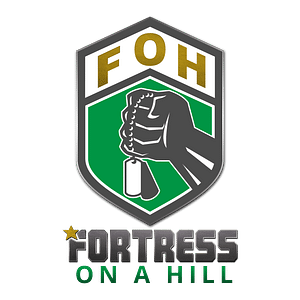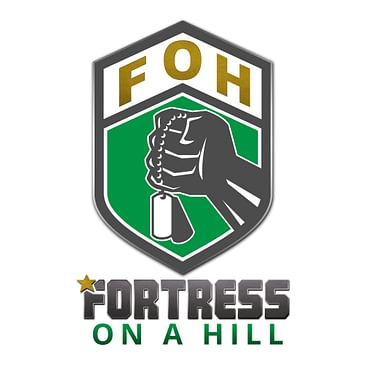Henri hosts Stephen Russell, a veteran and comic book author, who shares his upcoming memoir ‘Troublemakers: The Greatest Dog and Pony Show in Iraq’. The memoir details Russell’s deployment to Iraq in 2006 during the Surge with Bravo Company, 112th Cavalry Regiment, 3rd BCT, where Stephen details the huge losses his unit suffered. They discuss the contrast between the ‘sanitized’ hero portrayal in media and the sobering reality of combat outpost conditions. Russell also delves into his comic book ‘The Ballad of Phillip Kirschner’, which critically examines themes of heroism.
Main website: https://www.fortressonahill.com
Let me guess. You’re enjoying the show so much, you’d like to leave us a review?! https://lovethepodcast.com/fortressonahill
Email us at fortressonahill@protonmail.com
Check out our online store on Spreadshirt.com. T-shirts, cell phone covers, mugs, etc.: https://bit.ly/3qD63MW
Not a contributor on Patreon? Sign up to be one of our patrons today! – https://www.patreon.com/fortressonahill
A special thanks to our Patreon honorary producers – Fahim’s Everyone Dream, James O’Barr, Eric Phillips, Paul Appel, Julie Dupree, Thomas Benson, Janet Hanson, Ren jacob, Scott Spaulding, spooky Tooth, Helge Berg, and Howard Reynolds. You all are the engine that helps us power the podcast. Thank you so much!!!
Not up for something recurring like Patreon, but want to give a couple bucks?! Visit https://paypal.me/fortressonahill to contribute!!
Fortress On A Hill is hosted, written, and produced by Chris ‘Henri’ Henrikson, Keagan Miller, Jovanni Reyes, Shiloh Emelein, and Monisha Rios. https://bit.ly/3yeBaB9
Intro / outro music “Fortress on a hill” written and performed by Clifton Hicks. Click here for Clifton’s Patreon page: https://bit.ly/3h7Ni0Z
Cover and website art designed by Brian K. Wyatt Jr. of B-EZ Graphix Multimedia Marketing Agency in Tallehassee, FL: https://bit.ly/2U8qMfn
Note: The views expressed in this podcast are those of the hosts alone, expressed in an unofficial capacity, and do not reflect the official policy or position of the Department of the Army, Department of Defense, or the U.S. government.


